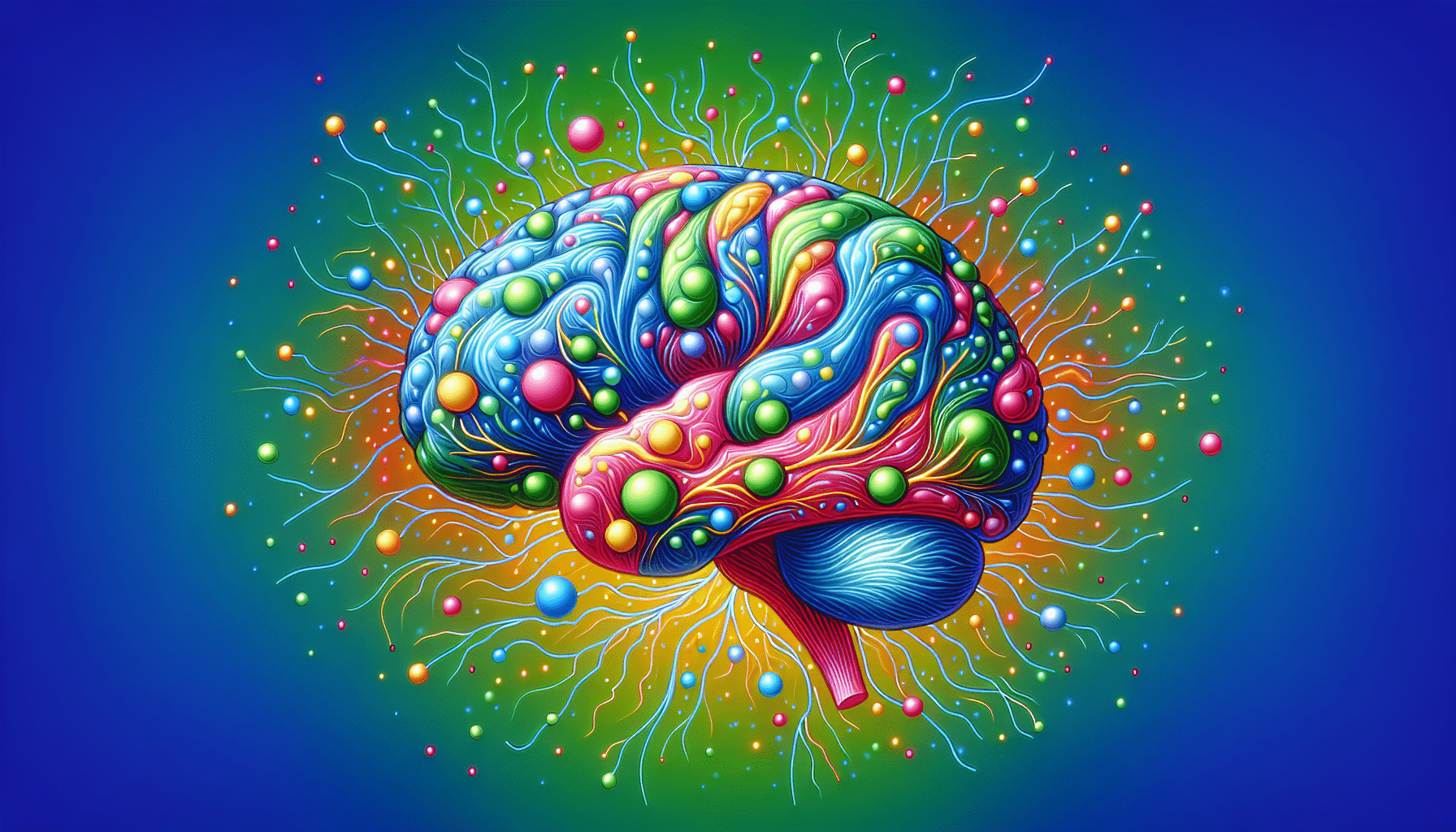Welcome to “The Benefits of Regular Brain Training for Preventing Cognitive Decline”! In this article, you will discover how consistent mental exercises can be a powerful tool in maintaining and even enhancing your cognitive abilities as you age. By engaging in activities that challenge your mind—such as puzzles, memory games, and learning new skills—you can keep your brain sharp, improve your problem-solving skills, and delay the onset of cognitive decline. Embrace the science-backed practices that will help you stay mentally agile and protect your brain's health for years to come. Have you ever wondered if regular brain training could actually help prevent cognitive decline? It's a question many of us ask, especially as we or our loved ones age. The idea of maintaining a sharp mind through engaging exercises is incredibly appealing, but how effective is it really?

Understanding Cognitive Decline
Before diving into the benefits of brain training, let's take a moment to understand what cognitive decline actually means. Cognitive decline refers to the gradual loss of brain functions, particularly as we get older. This can manifest in various ways, from forgetfulness to difficulty in processing information and problem-solving.
Common Symptoms of Cognitive Decline
To recognize the potential of brain training, it's helpful to know what cognitive decline typically looks like. Here are some common symptoms:
- Memory Loss: Forgetting recent events, names, or faces.
- Difficulty in Planning: Struggling to execute tasks that require steps and planning.
- Language Problems: Finding it hard to follow or participate in conversations.
- Disorientation: Getting confused about dates, time, and place.
- Poor Judgment: Making decisions that seem unusual or out of character.
Causes of Cognitive Decline
Cognitive decline can be influenced by various factors, including genetic predisposition, lifestyle choices, and other health conditions. Some key causes include:
- Aging: Natural wear and tear of brain cells over time.
- Lifestyle Factors: Poor diet, lack of exercise, and insufficient sleep.
- Health Conditions: Diabetes, hypertension, or high cholesterol.
- Mental Health: Chronic stress, anxiety, and depression.
The Science Behind Brain Training
So, how does brain training come into play? Brain training broadly encompasses activities designed to stimulate thinking skills like memory, reasoning, and problem-solving. These exercises aim to strengthen neural connections and encourage neuroplasticity – the brain's ability to adapt and change throughout life.
What Is Brain Training?
Brain training can take many forms, ranging from simple puzzles to complex cognitive tasks. Let's break down some common types of brain training activities:
| Type of Activity | Description | Examples |
|---|---|---|
| Puzzles | Activities that challenge problem-solving skills | Sudoku, crossword puzzles |
| Memory Games | Tasks designed to improve recall and recognition | Memory matching cards |
| Language Games | Exercises that enhance vocabulary and language skills | Scrabble, word searches |
| Mathematical Challenges | Problems that involve calculations or logical thinking | Math riddles, number puzzles |
| Attention and Focus Exercises | Activities that require sustained focus | Meditation, focus-based games |
How Does Brain Training Work?
Brain training works by engaging different parts of the brain in activities that require mental effort. Over time, these activities can help to develop and strengthen neural pathways, leading to improvements in cognitive functions.
Scientists believe that just like physical exercises keep your body fit, mental exercises can keep your brain in good shape. When you challenge your brain with new and complex tasks, you stimulate the growth of new neurons and synaptic connections.
The Benefits of Regular Brain Training
Now that we understand what brain training is and how it works, let's delve into the specific benefits it offers for preventing cognitive decline.
Improved Memory
One of the most noticeable benefits of brain training is its impact on memory. Regular engagement with memory games and puzzles can help enhance both short-term and long-term memory.
For example, a study conducted by the Alzheimer's Society found that individuals who frequently engaged in mentally stimulating activities had a slower rate of memory decline compared to those who did not. By challenging your brain to remember patterns, sequences, and details, you can effectively keep your memory sharp.
Enhanced Problem-Solving Skills
Brain training exercises that involve puzzles and logical challenges can significantly boost your problem-solving abilities. As you regularly tackle different types of cognitive tasks, your brain becomes more adept at identifying patterns, developing strategies, and finding solutions.
Enhanced problem-solving skills aren't just beneficial for everyday tasks; they can also improve your overall sense of independence and confidence.
Better Attention and Focus
Attention and focus can naturally decline with age. Fortunately, brain training activities that require sustained concentration, such as meditation or focus-based games, can help improve these skills.
For instance, mindfulness meditation has been shown to increase attention span and improve cognitive control, making it easier to stay focused on tasks at hand.
Increased Cognitive Reserve
Cognitive reserve refers to the brain's ability to find alternate ways of completing tasks when faced with challenges, such as damage or disease. Individuals with a higher cognitive reserve are better equipped to cope with cognitive decline.
Engaging in regular brain training can help build your cognitive reserve by keeping your brain active and healthy. Activities that stimulate diverse brain functions—such as reading, learning a new language, or playing a musical instrument—are particularly beneficial.
Delay in Onset of Dementia
One of the most compelling reasons to engage in brain training is the potential delay in the onset of dementia. Dementia, including Alzheimer's disease, is a significant concern for many individuals as they age.
Research indicates that individuals who keep their minds active through continuous learning and mental challenges have a lower risk of developing dementia. By maintaining a robust mental exercise routine, you may be able to stave off the early symptoms of cognitive diseases.
Emotional Well-Being
It's important not to overlook the emotional benefits of brain training. Engaging in mentally stimulating activities can have a positive impact on your mood and overall emotional well-being.
Activities that challenge your brain often involve elements of fun and recreation, such as games or group activities. These not only stimulate your mind but also foster social connections and reduce feelings of loneliness and depression.
Practical Tips for Effective Brain Training
While the benefits of brain training are clear, it's crucial to approach it in a practical and sustainable manner. Here are some tips to get the most out of your brain training efforts:
Choose a Variety of Activities
To keep your brain engaged and challenged, it's important to mix up the types of activities you do. This can help stimulate different parts of the brain and prevent monotony. Consider incorporating puzzles, memory games, language exercises, and meditation into your routine.
Set a Regular Schedule
Consistency is key when it comes to brain training. Try to set aside a specific time each day or week for these activities. Treat it like you would any other important appointment, making it a non-negotiable part of your schedule.
Challenge Yourself
While it's great to engage in activities you enjoy, don't shy away from challenging tasks. The more effort your brain has to put into solving problems and learning, the greater the cognitive benefits will be.
Involve Others
Brain training can be more fun and effective when done with others. Join a book club, participate in group puzzles, or take a class to learn something new. Not only does this make brain training more enjoyable, but it also provides social stimulation.
Monitor Your Progress
Keep track of the activities you're doing and any improvements you notice. This can help you stay motivated and recognize the positive impact brain training is having on your cognitive abilities.
Incorporate Physical Exercise
Physical exercise is another excellent way to support brain health. Activities like walking, swimming, or yoga can improve blood flow to the brain and promote the growth of new neurons. Combining physical and mental exercises can have a synergistic effect on brain health.

Supporting Research on Brain Training
Numerous studies support the benefits of regular brain training for preventing cognitive decline. Here are a few key pieces of research that highlight its effectiveness:
ACTIVE Study
The Advanced Cognitive Training for Independent and Vital Elderly (ACTIVE) study is one of the most extensive investigations into the impact of brain training on cognitive function. This study involved over 2,800 participants aged 65 and older who engaged in various cognitive training exercises.
The results showed that participants who took part in brain training experienced significant improvements in memory, reasoning, and speed of processing. These cognitive benefits were still evident up to ten years later.
NUN Study
The NUN Study, conducted by researchers at the University of Kentucky, examined the lives and brains of a group of nuns over several decades. The findings revealed that those who engaged in lifelong learning and mentally stimulating activities had a lower risk of developing Alzheimer's disease.
BrainHQ Program
BrainHQ is an online brain training program developed by neuroscientists. Studies evaluating BrainHQ have demonstrated that regular use of the program can improve cognitive functions, including memory, processing speed, and attention.
Cognitive Stimulation Therapy (CST)
Cognitive Stimulation Therapy (CST) is a structured program designed to improve cognitive function in individuals with mild to moderate dementia. Research has shown that CST can lead to significant improvements in cognitive abilities and quality of life.
Final Thoughts: Making Brain Training a Lifelong Habit
The benefits of regular brain training for preventing cognitive decline are well-supported by scientific research. By incorporating a variety of mentally stimulating activities into your routine, you can enhance your memory, problem-solving skills, attention, and overall cognitive reserve.
However, it's essential to remember that brain training should be a lifelong habit. Just like physical exercise, the best results come from consistent and continuous effort. So, whether you're solving puzzles, learning a new language, or simply engaging in thoughtful conversations, keep challenging your brain and nurturing its incredible potential.
By doing so, you'll not only work towards preventing cognitive decline but also enjoy a richer, more fulfilling life full of mental agility and emotional well-being. Remember, a sharp mind is one of the most valuable assets you can treasure throughout your lifetime.
